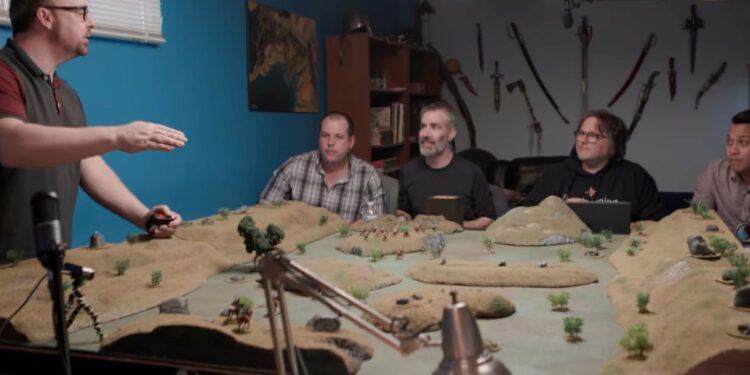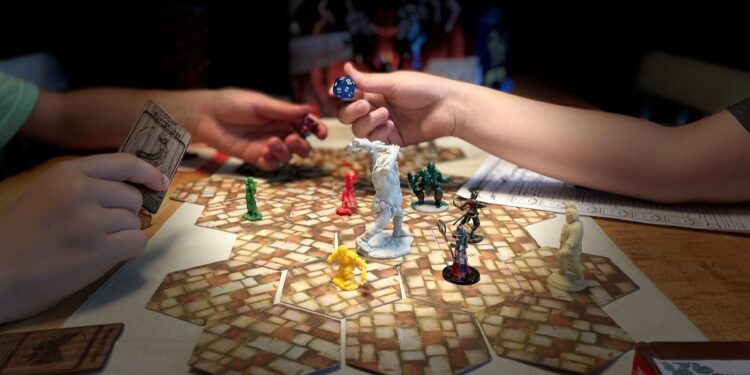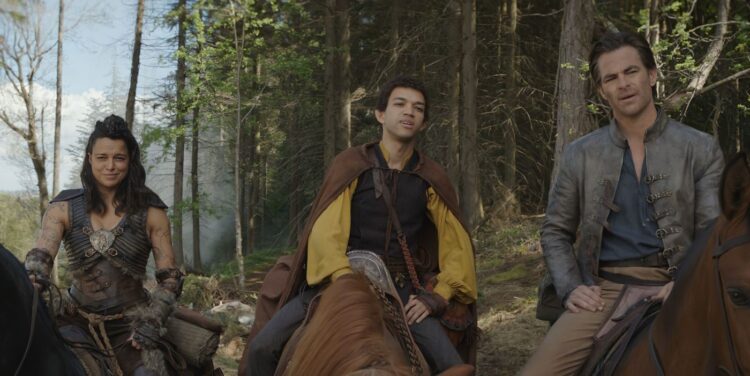Exhilarating quests, mythical creatures, and boundless imagination — that only spells one thing. The thrilling world of Dungeons & Dragons. From seasoned gamers to complete newcomers, the game appeals to people across the board. Whether it’s creating a character or navigating through treacherous dungeons, here’s how to wield creativity and strategy to overcome obstacles and shape your own narrative.
With D&D’s rich lore and limitless possibilities, the only boundaries in this fantasy realm are rooted in imagination. So, here’s to the thrill of collaborative storytelling as you join forces with friends to face off against fearsome foes, uncover hidden treasures, and forge lifelong memories. So gather your friends, sharpen your pencil, and prepare to be transported to a world where magic and adventure are yours to command.
Dungeons And Dragons: A Lesson In History

Dungeons and Dragons was the brainchild of Gary Gygax and Dave Arneson, two game enthusiasts. Altogether, their aim was to create a new type of game that combined elements of fantasy, strategy, and storytelling. The first edition of the game was published in 1974 by Tactical Studies Rules (TSR) and quickly became a hit among tabletop gamers.
What initially inspired the game? Two words — historical wargaming. At first, this mainly involved miniature soldiers and strategic battles. However, Gygax and Arneson wanted to add a new dimension to the game. As such, they incorporated elements of storytelling and character development. As such, they created a system of rules and dice rolls that allowed players to create their own characters and embark on their own unique adventures.
Over the years, Dungeons and Dragons has undergone several revisions and updates, with new editions and supplements being added to the game. Despite these changes, the core gameplay mechanics have remained largely the same. Players simply take on the roles of characters in a fantasy world. Then they embark on adventures guided by a Dungeon Master.
The Basics of D&D: Understanding The Game Mechanics

Dungeons & Dragons is a tabletop role-playing game where players assume the roles of heroic characters in a fantasy world. The game is guided by a Dungeon Master (DM), who acts as the narrator, referee, and storyteller. Each player takes turns describing their characters’ actions, while the DM sets the scene. More than that, they also control non-player characters and resolve the outcomes of the player’s choices.
At the heart of D&D are the game mechanics, which determine the success or failure of a character’s actions. The most fundamental of them all is the twenty-sided die or d20. Whenever a character attempts an action, such as attacking an enemy or casting a spell, they roll a d20. Then they go on to add modifiers based on their character’s abilities and skills. The result that follows determines whether the action is successful or not.
Besides the d20, characters have six core abilities: Strength, Dexterity, Constitution, Intelligence, Wisdom, and Charisma. These abilities reflect their physical and mental attributes and are crucial in determining their effectiveness in various tasks. For example, a character with high Strength would excel in combat, while a character with high Charisma would be persuasive and charismatic. Needless to say, understanding the game mechanics is essential for playing D&D effectively
Dungeons And Dragons In Popular Culture

The impact of Dungeons and Dragons on popular culture cannot be overstated. The game’s influence can be seen in movies, books, video games, and even music. Besides Dungeons & Dragons: Honour Among Thieves, the actual movie directly inspired by the game, many creators have openly credited D&D as a source of inspiration for their work. They have cited its unique blend of fantasy, adventure, and character-driven storytelling.
One notable example is the critically acclaimed Netflix series Stranger Things. Set in the 1980s, the show revolves around a group of kids who stumble upon a mysterious world filled with monsters and magic. The show’s creators, the Duffer Brothers, have acknowledged the influence of D&D on the series, stating that it captures the essence of their childhood experiences playing the game.
But, that’s not all, D&D has also influenced the literary world. Bestselling authors such as R.A. Salvatore and George R.R. Martin have incorporated elements of the game into their novels. Salvatore’s “Forgotten Realms” series, set in the same world as D&D, has garnered a dedicated fanbase. Meanwhile Martin’s “A Song of Ice and Fire” series draws inspiration from the game’s intricate political machinations and complex character relationships.
In the realm of video games, titles like Baldur’s Gate and The Elder Scrolls series owe a debt to D&D. These games embrace the open-world exploration, character customization, and narrative depth that are hallmarks of the tabletop game. The influence of D&D can also be seen in the rise of interactive storytelling games like The Witcher series and Mass Effect. It’s safe to say that Dungeons and Dragons has transcended its status as a tabletop game and become a cultural phenomenon.
 Follow Us
Follow Us





